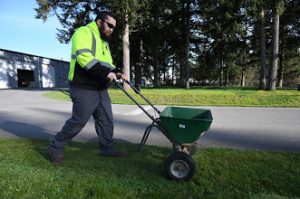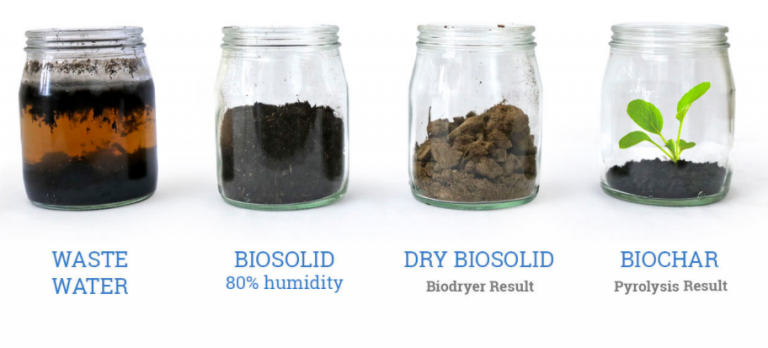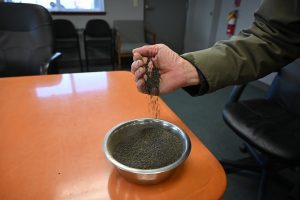City of Yelm Seeks Public Comment on Biodryer Installation
Ask City of Yelm Public Works Director Cody Colt a question about Class A biosolids and he won’t just tell you about them, he’ll show you. A clear plastic container of the materials in question sits on his desk, serving as a visual example of what a biodryer produces. The City of Yelm is moving forward with plans to install a biodryer at the Water Reclamation Facility (WRF) and seeks public comment through a virtual March 23 Public Meeting to take place after the regular City Council Meeting.

The installation would be the next step in a comprehensive plan to overhaul Yelm’s aging WRF. In the initial phases, the Public Works Department replaced the Reclaimed Water Pump Station and updated the SCADA computer system to enhance the system’s reliability. The biodryer would create the capacity for the city to manage its own septage, eliminating the need to transport waste-activated sludge to a facility in Shelton where it is turned into biochar at an annual cost of approximately $300,000.
The total cost of the biodryer and septage receiving station is $2 million, an investment that will pay for itself in four years, according to Colt. Aside from the cost savings of no longer shipping waste material to Shelton, the biosolids will be given away or sold to local schools and community groups, creating an additional revenue stream for the city. “We’ve been spending a lot of money on trucking solid waste to Shelton,” says Colt, “but if we can produce a product ourselves, a lot of people here can use it as fertilizer.” The city has already provided Yelm Community Schools with several bags of the product to try.
Any questions about the biodryer or Class A biosolids can be directed to the Public Works Department through Administrative Assistant Becky Jackson at beckyj@yelmwa.gov. “We really want public participation and to answer people’s questions,” says Colt. “We want feedback and to address any concerns. People may wonder if it’s safe, if this is something they can use in their yard, or what type of conditions are best for using it. We want to develop a good public understanding of what these biosolids are and how they work.”


What are Class A biosolids? The biodryer’s end products are Class A biosolids, a category of dewatered and heated sewage that meets guidelines for land application. By the time they have been fully reduced through the biodryer process, these giosolids have no detectible pathogens when they leave the treatment plant and can be used without restrictions according to national Environmental Protection Agency regulations, meaning they can legally be used as fertilizer on farms and vegetable gardens as well as being sold as compost or fertilizers for home gardeners. Class A biosolids are not to be confused with Class B biosolids, which are held to a lower standard.
In addition, the proposed biodryer will have to meet Washington State Department of Ecology standards, which Colt points out are some of the strictest in the country. “We know exactly what’s in these pellets,” he says. “For anyone who has a concern, there is a lot of information available about Class A biosolids, and the state DOE is totally on board with the fact that they can be safely used for anything.”
Yelm already uses its liquid waste as reclaimed water to irrigate Cochrane Memorial Park. Bringing in the biodryer would mean that the city’s entire waste process would now become self-sustaining while simultaneously saving money and reducing the city’s carbon footprint by getting more trucks off the road, Colt notes. Eliminating the need to transport solid waste to Shelton will save hundreds of trips per year.
The public meeting will include a short presentation that provides an overview and addresses frequently asked questions, followed by a question-and-answer period. Colt hopes that Yelm residents take advantage of the opportunity to get their questions answered and learn more about how the biodryer can benefit the community.
Register for the public meeting or learn more by visiting the City of Yelm website.
Thurston Talk
Heidi Smith
https://www.thurstontalk.com/2021/03/17/city-of-yelm-seeks-public-comment-on-biodryer-installation/?fbclid=IwAR0gfaTK7LWuPNZQlnsN_oZyd2XOn5kajH4y6W4tNoa3sOgtYVUq5J4Rpvc

